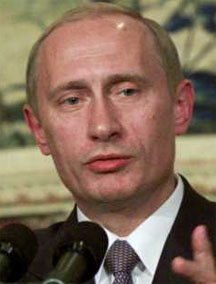MOSCOW, (Reuters) – Modern states should not restrict Internet freedoms, Russian Prime Minister Vladimir Putin said yesterday, apparently trying to dispel concerns the government might crack down on dissent ahead of elections.

Putin, a longtime Soviet KGB officer who is considering returning to the presidency in the March 2012 election, made clear the government had the means to limit internet freedoms but suggested it would be morally wrong to do so.
“One can always impose control, but the question is … whether the state has the right to interfere,” Putin told pupils at a secondary school he visited on the first day of the school year, according to Russian news agencies.
“In the modern world you cannot limit anything, you must simply work more effectively in this area,” he said, apparently hinting that the government should make better use of the Internet to counter the criticism it faces online.
In a country where much of the media is state-run and street protests are tightly restricted, the Internet is one of the last bastions of free speech. Bloggers who criticise the government or crusade against corruption have won broad followings.
Denial-of-service attacks on Russia’s most popular blogging site earlier this year kindled fears that authorities want to control Internet use before a December parliamentary election and the presidential vote next year.
Concern deepened during the Arab Spring unrest, when Russia’s domestic security service, which Putin once headed, said uncontrolled use of communication providers such as Gmail, Hotmail and Skype could threaten national security.
Putin, replying to a question from an 11th grader about potential limits on the Internet, suggested restrictions were not the best way to fight phenomena ranging from child pornography to “negative political appeals”.




